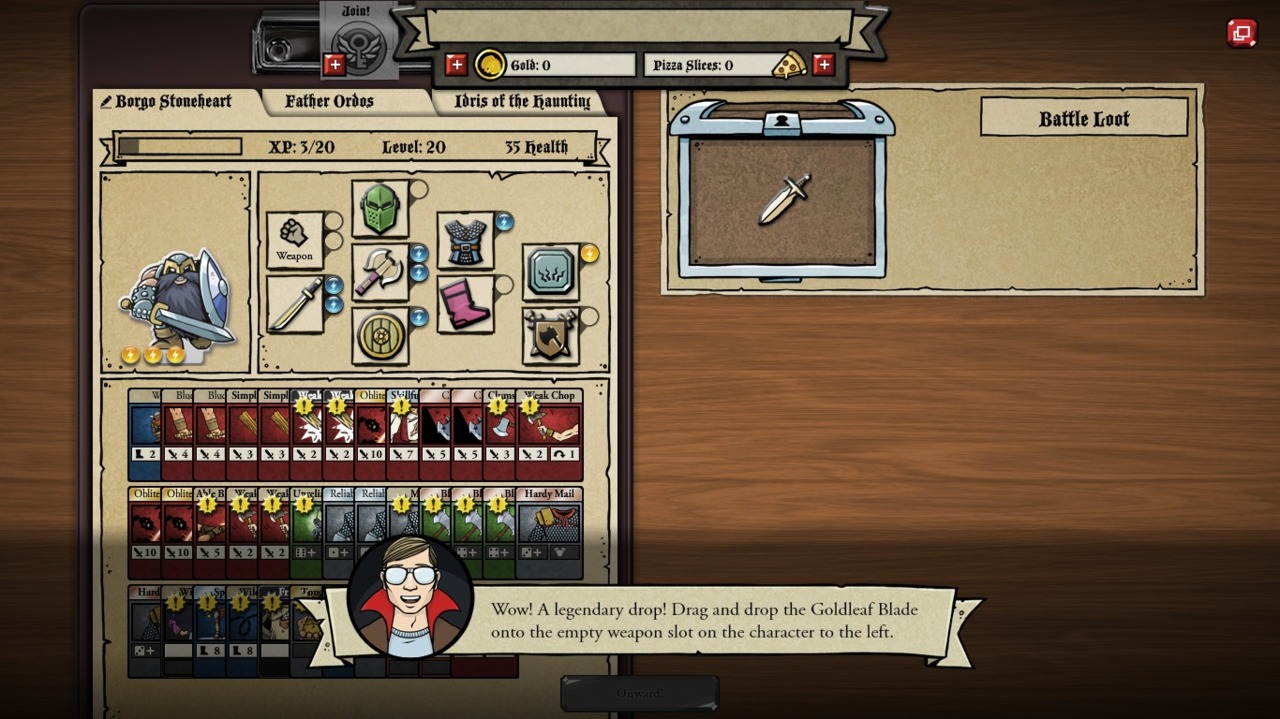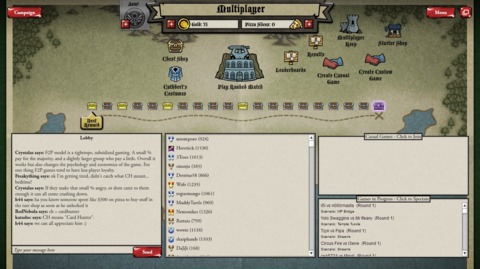Dungeons & Dragons has had an unquestionable influence on Western video games. Dungeon crawlers, role-playing games, and many more can trace their roots to that bastion of nerdom, and Card Hunter taps into its inspiration in a spectacularly fun way. A clever fusion of dice-based games and the more recent trading card games like Magic: The Gathering, Card Hunter is one of the most mechanically solid and engaging free-to-play games since League of Legends.
Right from the start, you notice that the browser game takes more than a few cues from its 40-year-old cousin. You have the standard character classes, including mages, knights, and warriors, as well as dwarves, elves, and humans for races. In each battle, you maneuver your team turn by turn, and organize their attacks to defeat any number of monsters and bosses all while a CPU dungeon master narrates.

It sounds like a pretty standard affair, but each of your characters, and each of the enemy's monsters, has a deck of cards from which is drawn everything from spells and attacks to armor and movement. Usually, your characters may only use one card per turn, and unlike in most tactical games or even Dungeons & Dragons, that often means thinking much more carefully about how you move your pieces and the degree to which you allow them to be vulnerable. Moving a melee brawler into position for a heavy-hitting, armor-piercing attack might be nice, but when you are likely to sacrifice your healer in the process, you might want to hold off for a turn or two.
Everything in the game comes down to cards. You can't move a piece as you please; you need a movement card from that character's deck to either get into striking range, or to get out of harm's way. Attacks, too, require cards, and you often find yourself in a situation where the only character in striking range just so happens to be the only one without an attack card. When you run out of cards from any of your characters' hands (and you will, often), you need to skip a turn to redraw a predetermined number of cards. If you choose to do so, however, your opponent is given the same opportunity. Preparing yourself tactically often means risking your foe receiving a valuable gift. While you may be desperate for more spells, perhaps your foe is too, and you keep him or her from having to waste a turn to resupply. Card Hunter is masterful at this sort of predicament play. Every move you make is an opportunity cost and does, in some way, put you at risk.
The community has proven so far to be astoundingly helpful even as they proceed to set fire to your dwarven warrior.
Against the game's many bosses, that risk is magnified greatly, because most are massive monsters with myriad special abilities, heavy armor, and large movement and attack ranges. Some can spit fire or acid, others have nigh impenetrable flesh, and many can fly or teleport. In these battles, your characters need to play their roles precisely; magic wielders tear away the armor, warriors dish out the big hits, and healers keep everyone going strong. That challenge, though, is amplified by the fact that you can play only one character per turn, and failing to proceed with caution quickly ends in a loss.

Card Hunter's greatest weakness is the ease with which you can accidentally waste a turn. Some cards can be played with just one click. The right mouse button gives you details on the effects of the card, and the left plays it. It's easy to slip and click the wrong button, playing the wrong card and giving up a valuable position. Fortunately, the computer players, at least in the early levels, are pretty forgiving, and you don't often risk campaign progress from such rudimentary mistakes, but multiplayer is another story. After you've played enough of the single-player missions to have some decent characters and nice equipment-filled decks, taking your game online against the teeming masses of eager players puts your tactical skills to the real test. Most players are ruthless, though friendly. The community has proven so far to be astoundingly helpful even as they proceed to set fire to your dwarven warrior.
Unfortunately, as of right now, there is no cooperative multiplayer option, but Blue Manchu promises that one is coming. Still, there's a tremendous amount of content here, especially for a free-to-play game, and the ease with which you can pick up your own equipment prevents it from earning the dreaded "pay-to-win" moniker. In any case, Card Hunter is one of a precious few browser games that works on every level. There are clear goals that are fun and attainable; the rules, while complex, are easy to learn; and solid strategic play is rewarded constantly. This excellent browser game is free, and there's no reason to not give it a shot right now.